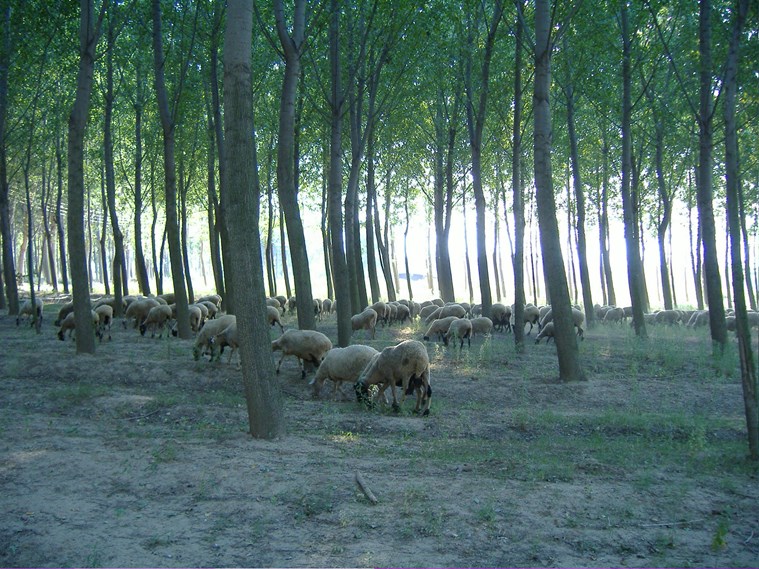Breeding sheep for climate resilience

Some Chios sheep are more resilient to temperature fluctuations making them more productive.
Pinpointing genes relating to variations in milk production could help breed animals resilient to warming conditions, new research has shown.
Scientists from SRUC, the Roslin Institute and the Aristotle University of Thessaloniki (AUTH) in Greece, found that some Chios sheep in the Mediterranean - whose milk is used to produce feta and other cheeses - are more resilient than others to temperature fluctuations throughout the seasons.
Groups of genes may enable some sheep to remain productive in hot and cold conditions and selecting animals with those genes for breeding could help flocks adapt in the region, which is vulnerable to climate change.
Using data relating to almost 40,000 ewes, collected by the Chios Sheep Breeders’ Cooperative ‘Macedonia’ in Greece, the scientists created a mathematical model of resilience to fluctuations in climate, based on records of milk productivity, time of lambing and weather throughout the seasons.
Some animals responded better than others to temperature fluctuations in hot or cold conditions, with some hardly being affected by changes, analyses found.
Ewes’ resilience to hot or cold temperatures depended on the season in which they had produced lambs, with animals that had lambed in spring generally responding better to hot conditions.
Future studies could focus on specific genes associated with resilience to temperature fluctuations in individual animals, with the insight being used to inform how to optimise breeding selection for this trait, alongside other desirable characteristics such as reproductive potential.
Professor Georgios Banos, from SRUC and the Roslin Institute, said: “Our findings have implications for selectively breeding animals with genes that enable resilience to changing climates and for farm management, such as the time of year when ewes are bred.”
The study, published in Scientific Reports, was carried out within the Horizon 2020 research project iSAGE ‘Innovation for Sustainable Sheep and Goat Production in Europe’, coordinated by the Laboratory of Animal Husbandry, School of Veterinary Medicine, AUTH.
Professor Georgios Arsenos, project coordinator at AUTH, said: “Our aim in iSAGE was to identify challenges and opportunities and make the European sheep and goat sectors more sustainable, competitive and resilient. In this study, working together with industry, we propose strategies addressing future climate challenges that are applicable in practice.”
You can read the full report on our PURE research site.
Posted by SRUC on 07/04/2021
